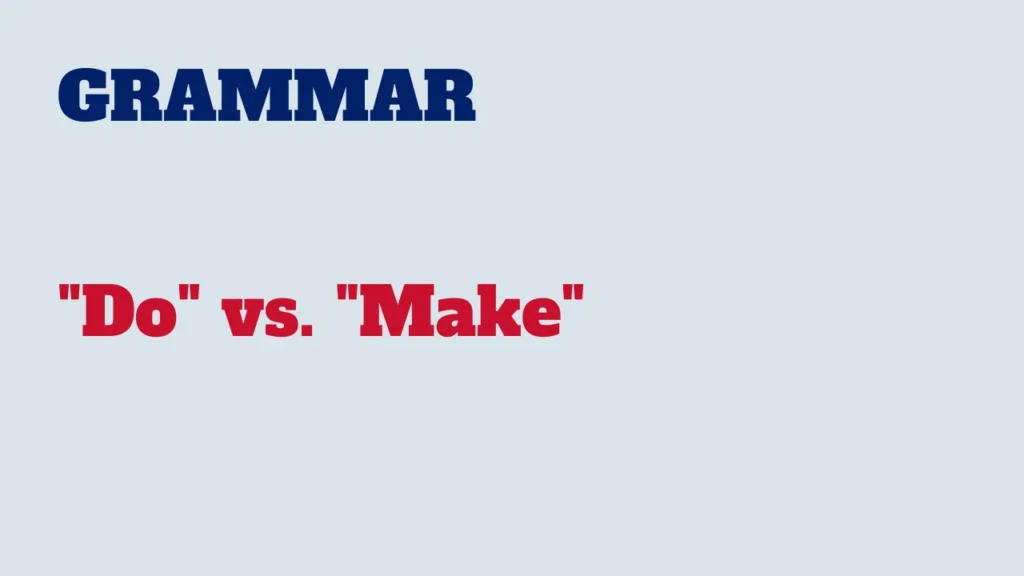The English language often presents learners with subtle challenges, and one common area of confusion is the distinction between the verbs “do” and “make.” While both verbs involve performing actions, they are used in different contexts, and understanding their nuances is essential for constructing accurate sentences.

In this lesson, we will explore the distinctions between “do” and “make” to facilitate clearer communication.
“Do”:
Usage:
“Do” is often used for activities, tasks, and actions without a specific end product.
Examples:
She does her homework every evening.
Can you do the dishes after dinner?
Common phrases:
Do the laundry
Do your best
Do the shopping
“Make”:
Usage:
“Make” is used when creating or constructing something tangible, resulting in a product.
Examples:
She makes delicious cakes.
Can you make a cup of tea for me?
Common phrases:
Make a decision
Make a meal
Make a plan
Common expressions and idioms:
“Do” expressions:
Do someone a favor
Do business
Do the right thing
“Make” expressions:
Make a difference
Make a choice
Make up your mind
Special cases:
“Do” in leisure activities:
“Do” is commonly used with sports and leisure activities.
Example:
He does yoga every morning.
“Make” in expressions of creation:
“Make” is used when emphasizing the act of creation or production.
Example:
She made a beautiful painting.
Common mistakes to avoid:
Using “Do” for creating:
Incorrect: She did a cake for the party.
Correct: She made a cake for the party.
Using “Make” for general actions:
Incorrect: Can you make the bed, please?
Correct: Can you do the bed, please?
Mastering the distinction between “do” and “make” is essential for constructing precise and contextually accurate sentences. While “do” is generally associated with activities and tasks, “make” is employed when there is a tangible outcome or creation involved. By becoming familiar with common expressions and practicing their usage, learners can navigate these verbs with confidence, contributing to clearer and more effective communication in English. Happy learning!



